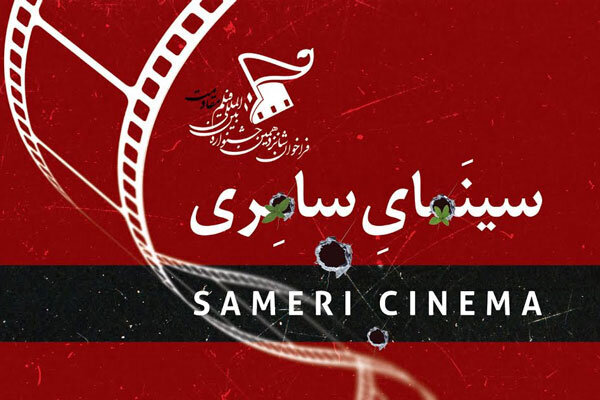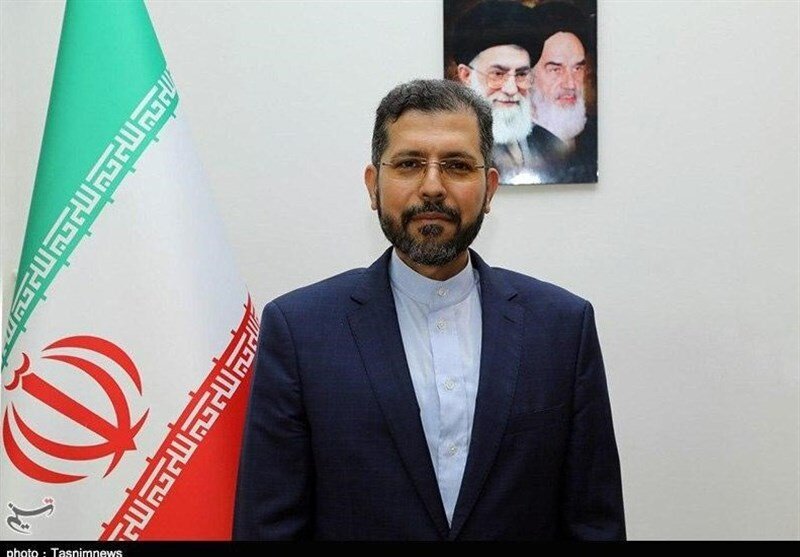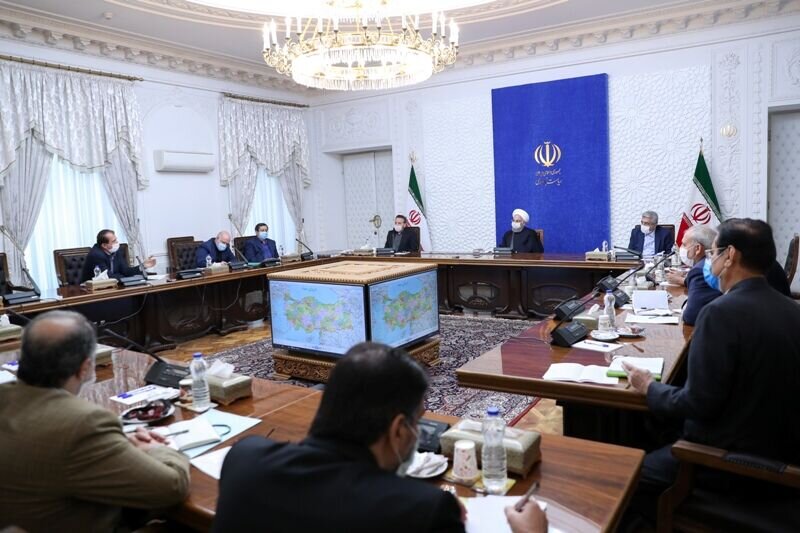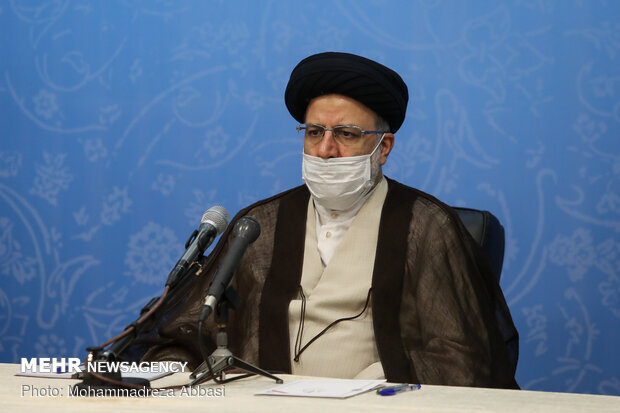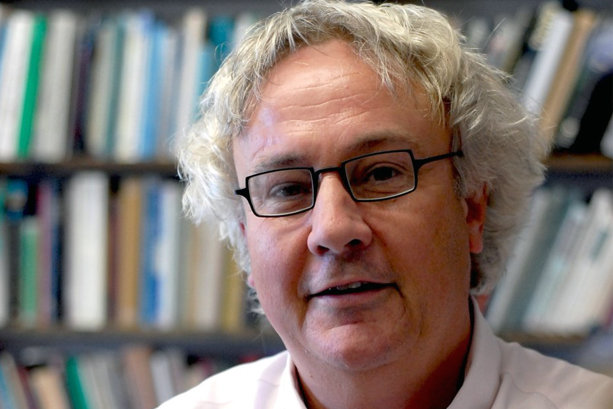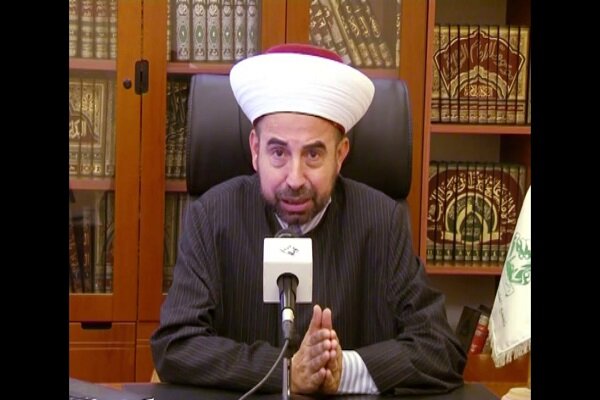TEHRAN – Muhammad al-Zoubi, a Lebanese Islamic scholar, is of the opinion that all Yazid’s crimes are embodied in the Zionist regime-U.S. axis, and “we find the Husseini nobility in the axis of the Islamic Republic and the resistance movement.”
Like his father imam Ali, Imam Hussein enjoys an important and distinguished position in the collective Islamic mind. Since he is a "Sahabi," a companion of the Prophet, there is no conflict between Sunni scholars regarding the character of Hussein bin Ali, the grandson of the Prophet. Many Sunni scholars have been inspired by Imam Hussein and his uprising in the course of history.
Hussein was martyred along with some members of his family in the Battle of Karbala in 61AH by the army of the second Umayyad caliph Yazid in a bloody war, which was described as the darkest chapter of Islamic history.
Despite the catastrophic impact of the event on the history of Islam, many Wahhabi thinkers have scrambled to find justifications and excuses for Yazid in an attempt to exonerate and distance him from this incident while other Sunni scholars consider him degraded and have vilified and execrated him.
In this regard, al-Zoubi tells the Tehran Times that "Yazid represents aggression, injustice, immorality, selfishness, violation of religious values and morality for the sake of self-interest."
He likens the Zionist regime’s massacres to Yazid's approach and behavior in history.
Following is the full text of the interview:
Q: What message does Imam Hussein's movement carry to current generations? Why is it said that “every day is Ashura and every land is Karbala”?
A: The history of nations cannot be separated from their present. History in its path is composed of the accumulations and experiences that shape a society's character. It was indeed subjected to changes that modified its path, but these changes turned into main elements of the nation's collective consciousness.
Therefore, in his movement Imam Hussein, peace be upon him, did not limit his perspective to fight the tyranny of the Umayyad dynasty, but he was concerned about the reality of the Ummah and retrogression of Muslims.
Justice is the main goal of all prophets, as God said: "We have sent Our Messengers with proofs and sent them with the Book and the Scales so that people might establish the justice."
The Umayyads’ crime was not only distorting the message of Muhammad (peace be upon him and his family) but also diverting the path of the Abrahamic religions and the calls of the prophets.
The Umayyads wanted to replace the rule of justice with a tyrannical king's rule and the necessity of obedience.
They invented false statements attributed to the Prophet (peace be upon him and his family), ordering obedience to the rulers and kings, regardless of injustice and depraved life they had, banning disobedience.
Therefore, the message of Imam Hussein was to prevent the distortion of Islam, telling Ummah: Islam is not the religion of the Sultan (ruler), but its mission is to bring justice for the world after establishing it among the Ummah.
The Muslim historian Al-Tabari, in his book, refers to a message from Imam Hussein, (peace be upon him) to the people of Kufa in which he said: "I swear by my life, the Imam is who follows the holy book (Quran), who rises for the justice and who applies the educations of religion and devote his life for God ."
The Sultan (ruler) has no legitimacy unless by following God's book, religion, justice, preserving the true religion from falsification, shun selfishness or self-interest for God's sake.
Karbala was not just a spot of land on which a group of the oppressed people were killed. Karbala was the voice of truth in history and representation of the divine-human nature that sees living with the oppressors as humiliation.
Karbala was not only a historical event but was an epic that included all the values, concepts, and truths of religion: faith, love, truth, justice, asceticism, generosity, sacrifice, patience.
So all the lands are Karbala, and every day is Ashura.
It is our duty to read and compare Karbala with our life, with our place, with our era. The U.S. today is following the lies of the Umayyad when it describes the Islamic Republic, which extends its hand to weak and oppressed people, as a rogue state.
When Amr bin Al-Hajjaj, one of Yazid's (the second caliph of the Umayyad caliphate) army commanders, addressed Kufa's people describing Imam Hussein like a rebel, saying: "people of Kufa! Obey the ruler, and do not hesitate to kill the apostates."
Thus, America today encourages oppression, injustice, and aggression under the slogan of following the international community.
It accuses those who work to defend the rights of the Lebanese, Palestinians, and Yemenis as rogue groups, of being abnormal, although the international community today is beginning to take a departure from the American dictates.
“When we wish to be with Imam Hussein, to reach great salvation, it should be instilled in us that we search for our own Karbala in our lives in order to be against Yazid of our era. Every era has its Yazid, and every period has its Hussein.”
Yazid represents aggression, injustice, immorality, selfishness, violation of religious values, and morality for the sake of self-interest.
But Hussein represents justice, truth, sacrifice, morality, values, and supporting oppressed people.
If we read our reality today, we find out that all Yazid’s crimes are embodied in the Zionist-American axis, and we find the Husseini nobility in the axis of the Islamic Republic and the resistance.
Although we did not attain the honor of fighting beside Hussein (peace be upon him), this honor presents itself to us today when we do not hesitate to confront the hegemony of the U.S.
We do everything possible to resist American arrogance without fatigue, boredom, weakness, or being influenced by the mainstream media pressure.
We must support the Husseini revolution in our era by backing the Islamic Revolution and the Islamic resistance to establish justice and support the oppressed people.
Q: What is the status of Imam Hussein among the Sunnis and their books?
A: To answer this question, it will suffice to mention some hadiths of Prophet Muhammad with brief comments:
In Sunan al-Tirmidhi it is quoted from Prophet Muhammad (peace be upon him and his family) that says: "It was an angel never descended on the earth before that night. He asked God for permission to greet me and tell me that Fatima (daughter of Prophet Muhammad) is the master lady of the women of paradise and that Hassan and Hussein are the masters of paradise's youth.”
In the Sunan of Ibn Majah, Sunan al-Tirmidhi, the Musnad of Ahmad and Mu'jam al-Tabarani, and Mustadrak al-Hakim on the two Sahihs and authenticated by al-Dhahabi, it is quoted that Prophet Muhammad, (peace be upon him and his family) said: "Hussein is from me, and I am from Hussein. Allah loves anyone who loves Hasan and Hussein. They are two of my distinguished descendants."
In Sunan al-Tirmidhi and Mustadrak al-Hakim, it is quoted from Umm Salamah saying: I saw the Prophet Muhammad, in a dream with dust on his head and beard, so I asked him what happened to him? He said: "I witnessed the killing of Hussein earlier."
In Al-Mustadrak of Sahih Al-Hakim authenticated by Al-Dhahabi, it is quoted from Ibn Abbas, who said: God told Prophet Muhammad: "I killed seventy thousand in revenge for Yahya ibn Zakariyya (John Son of Zechariah), and I will kill double of this number in revenge for your daughter's son.”
In the Musnad of Ahmad, Musnad al-Bazzar, and Mu'jam al-Tabarani it is said: Naji al-Hadrami was walking with Imam Ali when he said that "be patient Abu Abdullah! Be patient Abu Abdullah on the coast of the Euphrates!" I asked him what that is. He said that he had met the Prophet Muhammad (peace be upon him), one day, and as if he was tearful and asked him if someone had made him angry? He answered that Angel Gabriel arose from him before a moment and told him that Hussein would be killed in the Shatt al-Furat (Euphrates).
Imam Ali asked Hadrami, "Do you like to smell it from its soil?" and he said yes. So, Imam Ali grabbed a fist of soil and gave it to him.
Prophet Muhammad (peace be upon him and his family) cried for Hussein before his martyrdom because he could not witness Karbala's tragedy. The Lord of existence informed the prophet about Karbala and presented to him the soil of Karbala to smell it.
Q: How can the martyrdom of Imam Hussein unite Muslims, Sunnis and Shiites?
A: We must show the truth of Ashura and that it is the uprising of Islam against distortion.
With their four schools of thought, Sunni scholars unanimously agree on the debauchery of Yazid, his perversion, and his criminality, though the Wahhabis (the followers of Ibn Taymiyyah and Ibn Abd al-Wahhab) refused to follow the consensus of Sunnis.
Therefore, the two wings of Islam (Sunnis and Shiites) must follow the Book of God that calls for justice and forbids wrongdoing, and the history and statements must be compared to the Book of God, and not to read history through the eyes of tyrants. As Sunnis and Shiites unite in the position of condemning injustice and immorality of Yazid, they must unite today in the face of arrogance by the Zionist regime and the U.S.
Muslims must stand by the resistance in Palestine, Lebanon, Yemen, and Syria, and support every oppressed around the world, and deal with their differences in a scientific way in an atmosphere of Islamic brotherhood.
Q: How did the Islamic Ummah reach such a stage that a person like Yazid came to power and manipulated the tradition of Prophet Muhammad and killed Imam Hussein?
A: In fact, Imam Hussein (peace be upon him) described the reality of the Ummah in his letter to the nobles of Basra, as al-Tabari has reported in his book (History of Nations and Kings) The Imam says: "I invite you to the Book of God (Quran) and the tradition of the Prophet. The Sunnah (tradition of the prophet) is dead, while heresy has been revived, and if you hear my words and obey my advice I will guide you to the path of rectitude.”
In another speech quoted in al-Dhahabi's book History of Islam, Imam Hussein says: "The world has changed and repudiated Righteousness, don't you see the right is not fulfilled, and falsehood not prevented? So that the believer desires to meet with God. Because of that, I don't see the death but happiness and life with the wrongdoers an ignominy."
This is the reality of the Ummah in the era of the Umayyads. The Sunnah is dead, and people have quitted the Book of God and the tradition of his Prophet, while the truth is suspended and falsehood rules the society.
Al-Bukhari narrates in his book Sahih that al-Zahri (one of the prophet's companions) went to Anas Ibn Malik (another companion of the prophet) in Damascus while he was crying, and asked the reason of his sadness. Anas said: "Nothing remained from the prophet's tradition except this prayer, and this prayer has been lost."
This is an explicit confession by a companion of the prophet quoted in Sahih Al-Bukhari, which shows Islam has gone entirely.
To know how the Ummah reached this decline to the extent that a tyrant like Yazid rules the society, needs a deep and detailed study, and here I should suffice with key factors:
Since Imam Ali and the prophet's family (Ahl al-Bayt) have been eliminated in Ummah, the danger has begun to loom over Islam's horizon, while the prophet had warned about it before.
There are many hadiths (Prophet's words) in the books of Sunnis; for example, in Musnad al-Bazzar and Mu'jam al-Tabarani, Prophet Muhammad said: "You will be tested in my family (Ahl al-Bayt)."
In Sunan al-Nasa'i, it is quoted that when the prophet, returned from the farewell pilgrimage (the final Hajj in which the Prophet Muhammad participated) and reached Ghadeer Khumm, he ordered to stop.
Then he said: It seems that God has invited me, and I accepted his call. I am leaving among you, two valuable things; one of them is greater than the other; the Book of Allah and my family (Ahl al-Bayt), and they will not separate.
Then he said: "God is my lord, and I am the master of every believer." Then he took Ali's hand and said: "For whoever, I am his master, now Ali is his master.
May God be a supporter and friend of whoever supports Ali and hostile to whoever is hostile to Ali."
So, the danger began to loom over Ummah when it excluded one of the two valuable things (Quran and Ahl al-Bayt).
Undoubtedly, the deviation increased during the era of Muawiyah, who distorted the path of Islam and entered predestination doctrine into Muslims' beliefs to tell people that the rulers of the Umayyads are a destiny from God.
When his son Yazid inherited the rule, Muawiyah said that is the will of God.
This is how the Umayyads spread throughout the Ummah that their evils and criminality are God's wills, which cannot be objected to.


